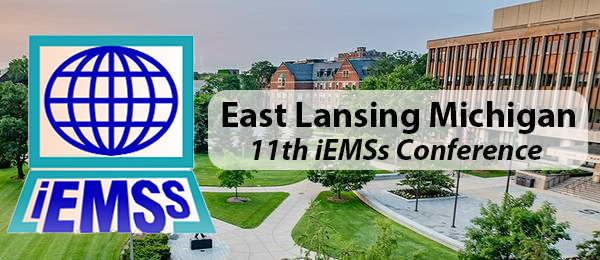Keywords
agent-based modelling; individual-based modelling; socio-ecological systems; theory development
Start Date
6-7-2022 8:40 AM
End Date
6-7-2022 9:00 AM
Abstract
At its dawn, agent-based modelling (ABM) has been characterized by ad hoc model designs and poor model analysis. The development and increasing use of standards for documenting and testing models (e.g., ODD, ODD+D, TRACE) contributed significantly to an increase of transparency and reproducibility. Software environments specifically designed for ABMs (e.g. NetLogo, GAMA, MESA) facilitate both model development and implementation, while diffusion of Python and R-packages facilitate a thorough simulation experiments’ design and output analysis. Still, despite a massive progress on levering practice of micro-foundations of ABM design, most ABMs are developed from scratch over and over again. This is not only time-inefficient, but also leads to ad hoc interpretations of some commonly agreed principles of model’s design, like implementation of a specific behavioural theory in a computational code. We argue that both ABM development and coherence are severely limited by this single-warrior practice which instead can benefit from reusable building blocks (RBBs). RBBs are submodels describing processes that are relevant for a broad range of ABM in a certain application domain, for example plant competition in vegetation models, or reinforcement learning in a behavioural model. Producing RBBs, however, and making them easily accessible is challenging. We outline a possible strategy for a concerted development, release, and use of RBBs. We first give a brief overview of how and why building blocks are used in other areas of software development and what advantages this has. Then we present examples of existing building blocks from the social sciences and ecology. We discuss the direct benefits for community as a whole and to individual modellers and how these benefits can be supported by top-down processes such as the provision of web repositories. Finally, we propose a template that guides the development and release of RBBs and present a web repository for RBBs.
Reusable building blocks for agent-based modelling: benefits, challenges, and a template for their release
At its dawn, agent-based modelling (ABM) has been characterized by ad hoc model designs and poor model analysis. The development and increasing use of standards for documenting and testing models (e.g., ODD, ODD+D, TRACE) contributed significantly to an increase of transparency and reproducibility. Software environments specifically designed for ABMs (e.g. NetLogo, GAMA, MESA) facilitate both model development and implementation, while diffusion of Python and R-packages facilitate a thorough simulation experiments’ design and output analysis. Still, despite a massive progress on levering practice of micro-foundations of ABM design, most ABMs are developed from scratch over and over again. This is not only time-inefficient, but also leads to ad hoc interpretations of some commonly agreed principles of model’s design, like implementation of a specific behavioural theory in a computational code. We argue that both ABM development and coherence are severely limited by this single-warrior practice which instead can benefit from reusable building blocks (RBBs). RBBs are submodels describing processes that are relevant for a broad range of ABM in a certain application domain, for example plant competition in vegetation models, or reinforcement learning in a behavioural model. Producing RBBs, however, and making them easily accessible is challenging. We outline a possible strategy for a concerted development, release, and use of RBBs. We first give a brief overview of how and why building blocks are used in other areas of software development and what advantages this has. Then we present examples of existing building blocks from the social sciences and ecology. We discuss the direct benefits for community as a whole and to individual modellers and how these benefits can be supported by top-down processes such as the provision of web repositories. Finally, we propose a template that guides the development and release of RBBs and present a web repository for RBBs.



Stream and Session
false